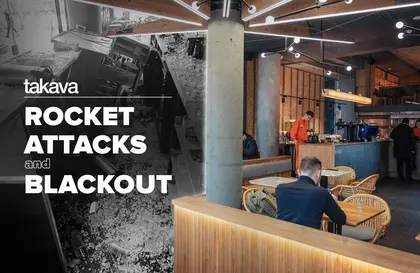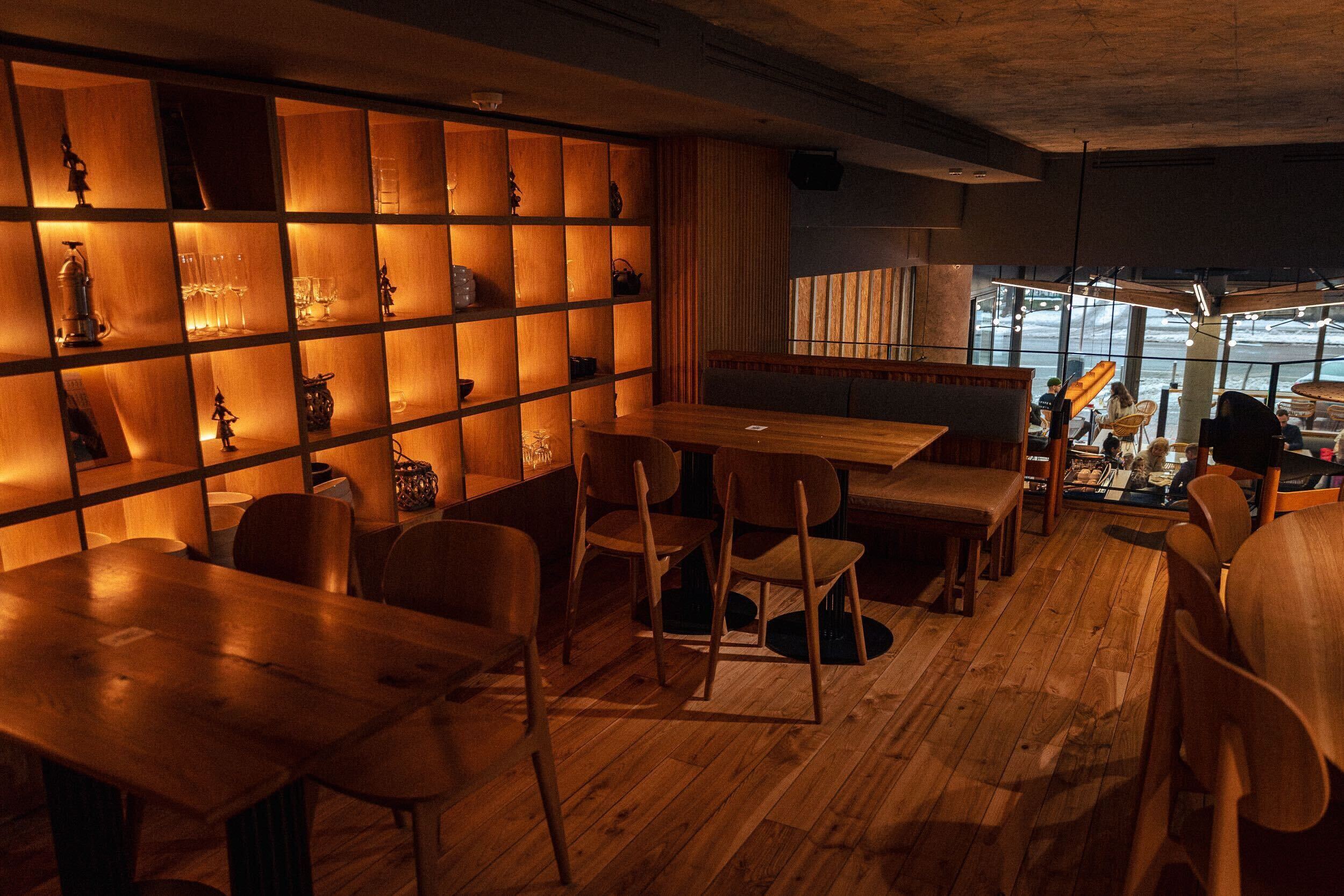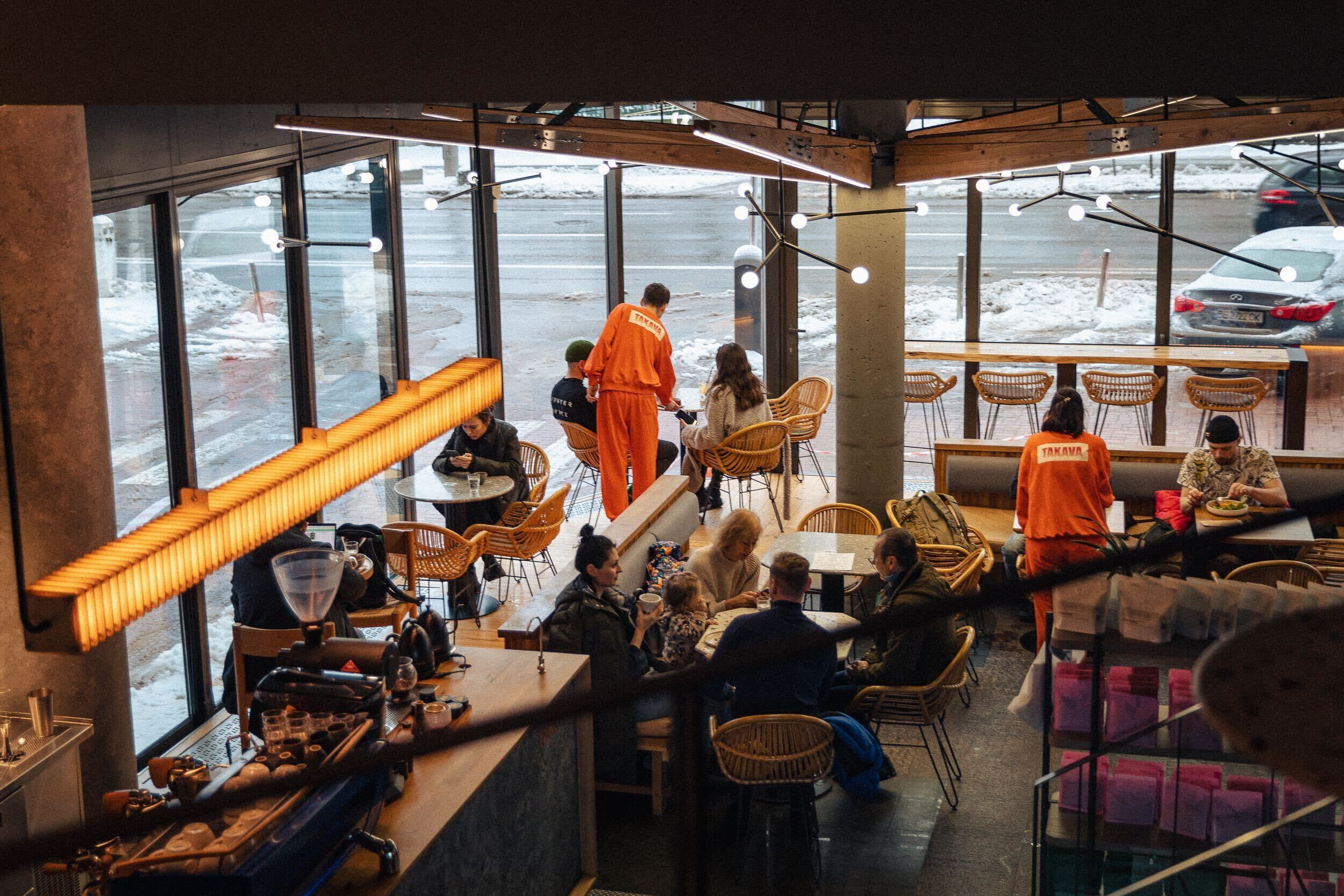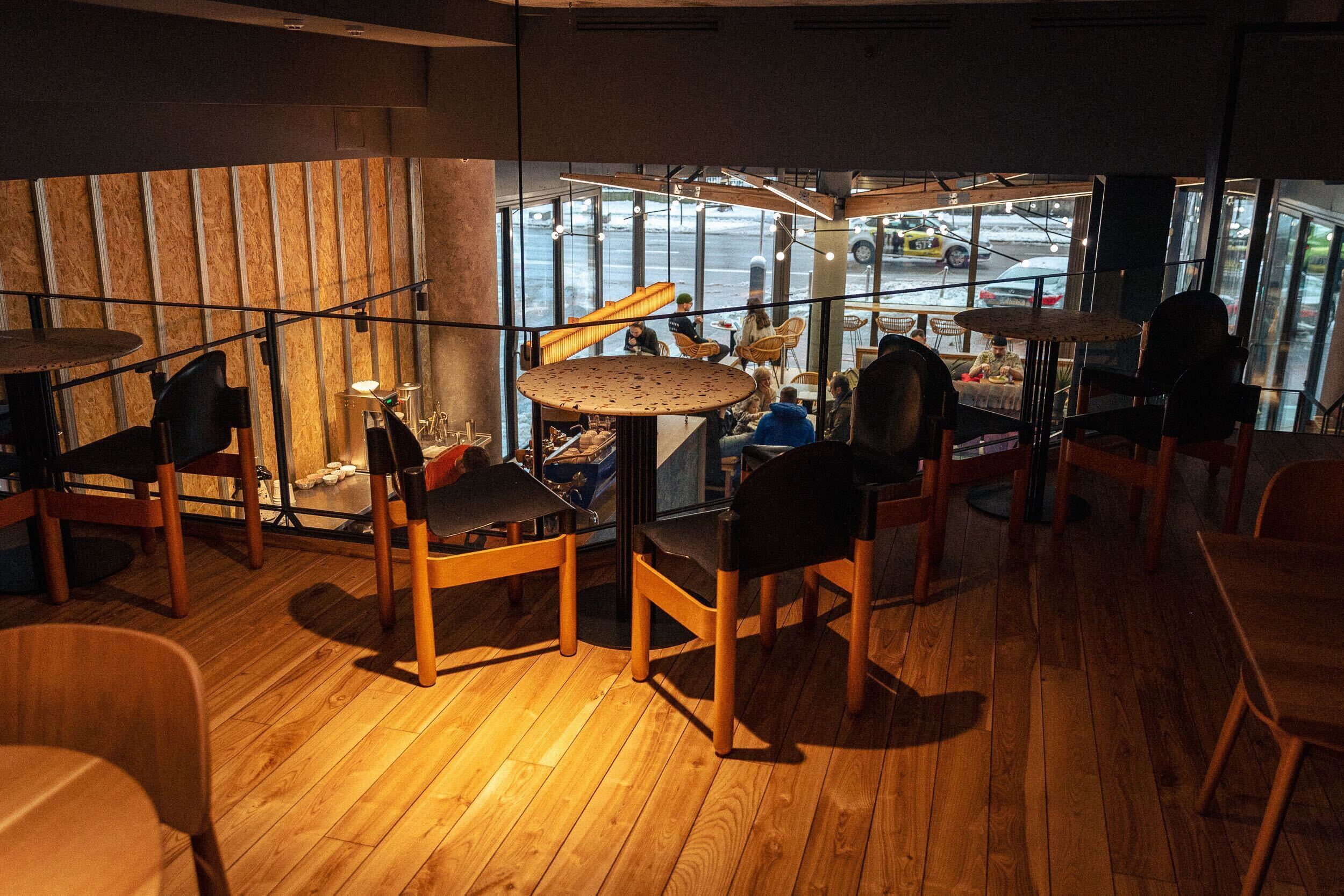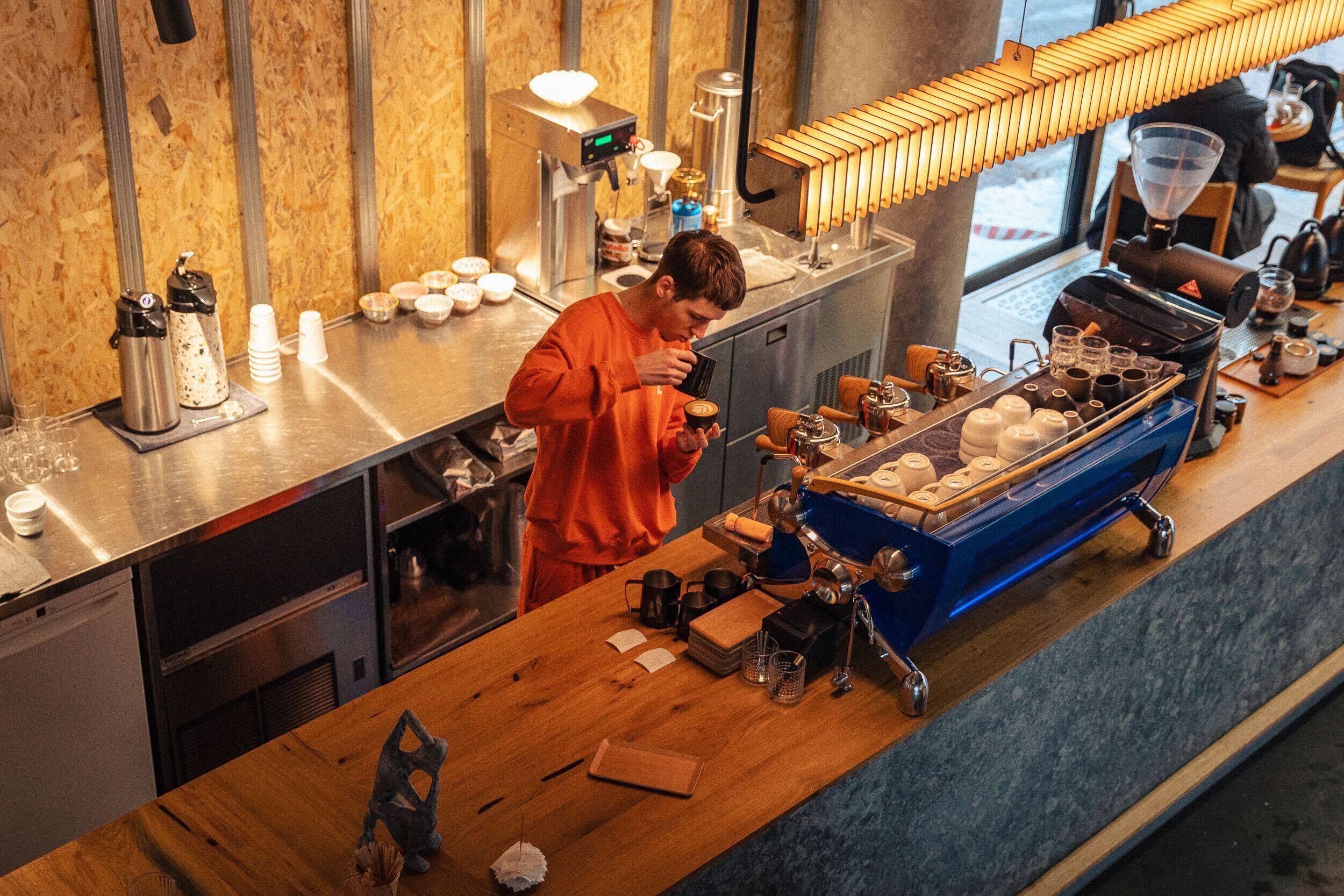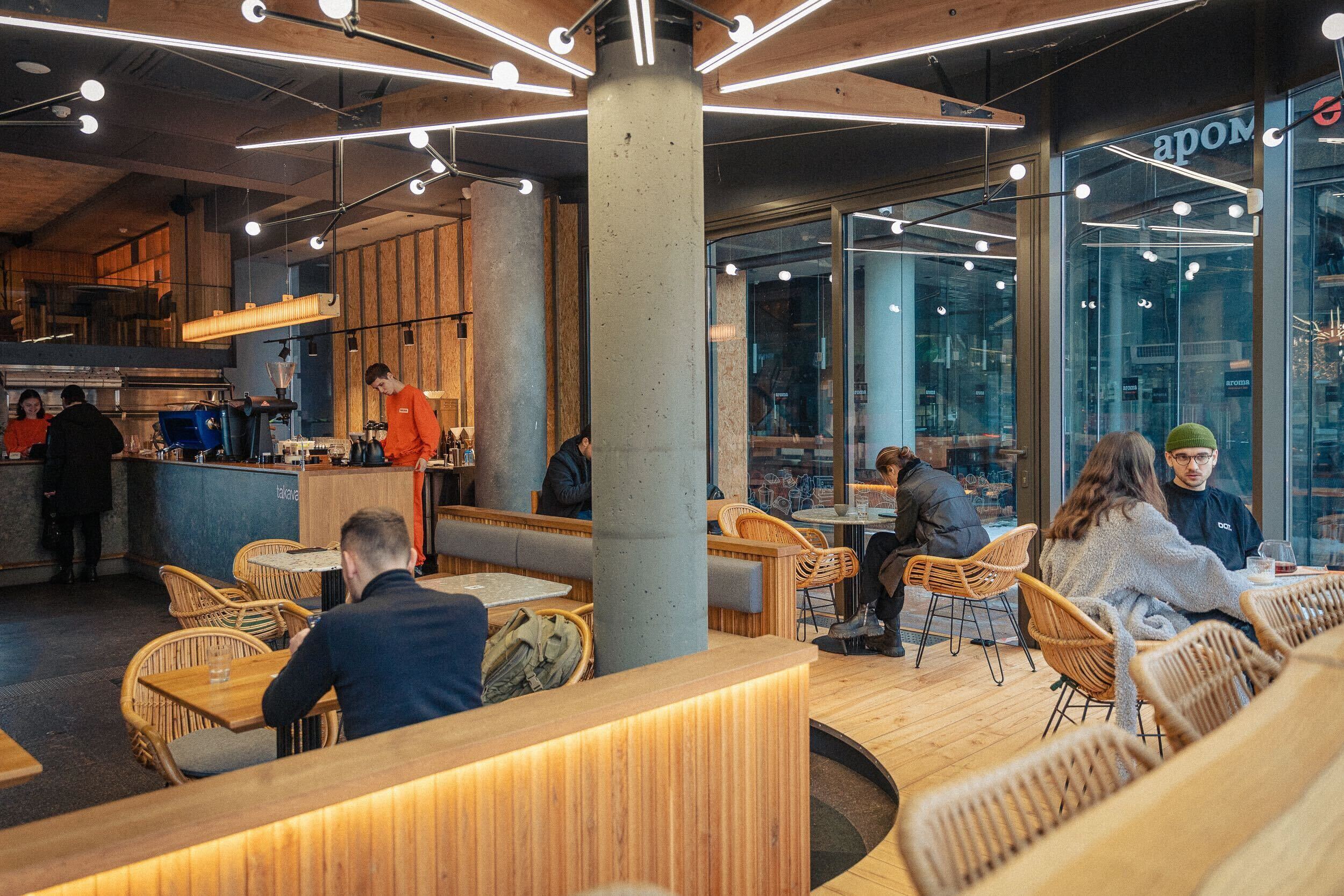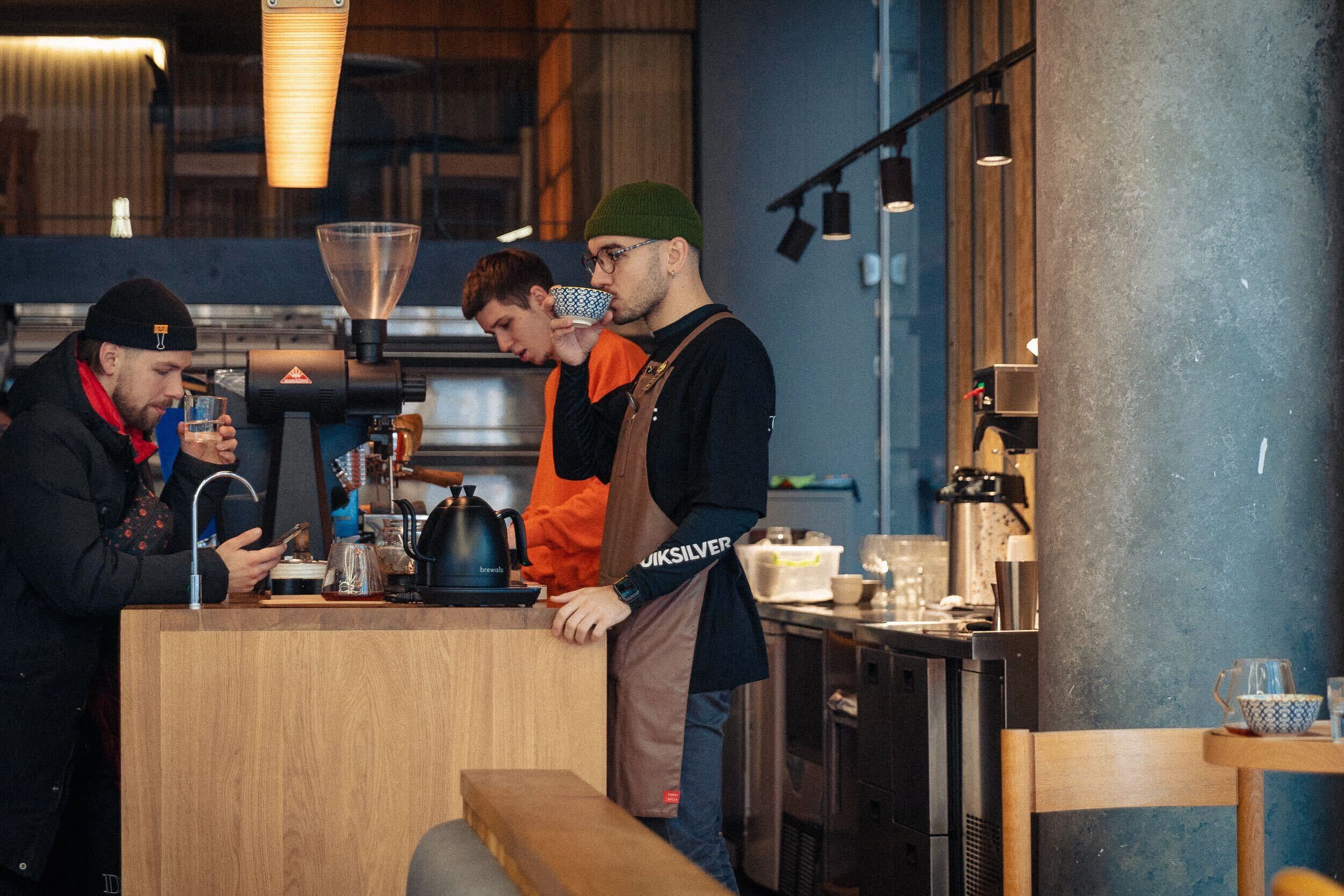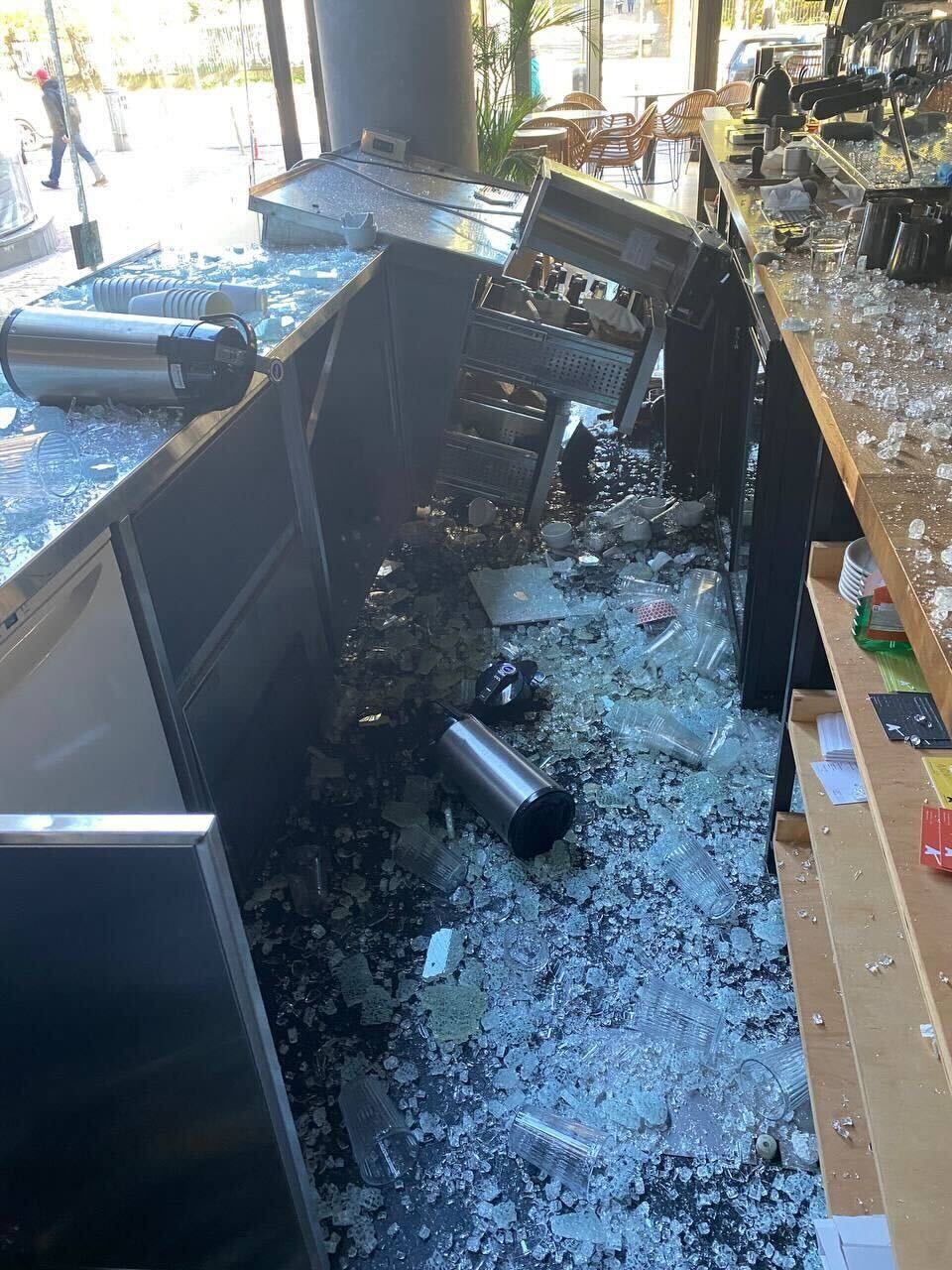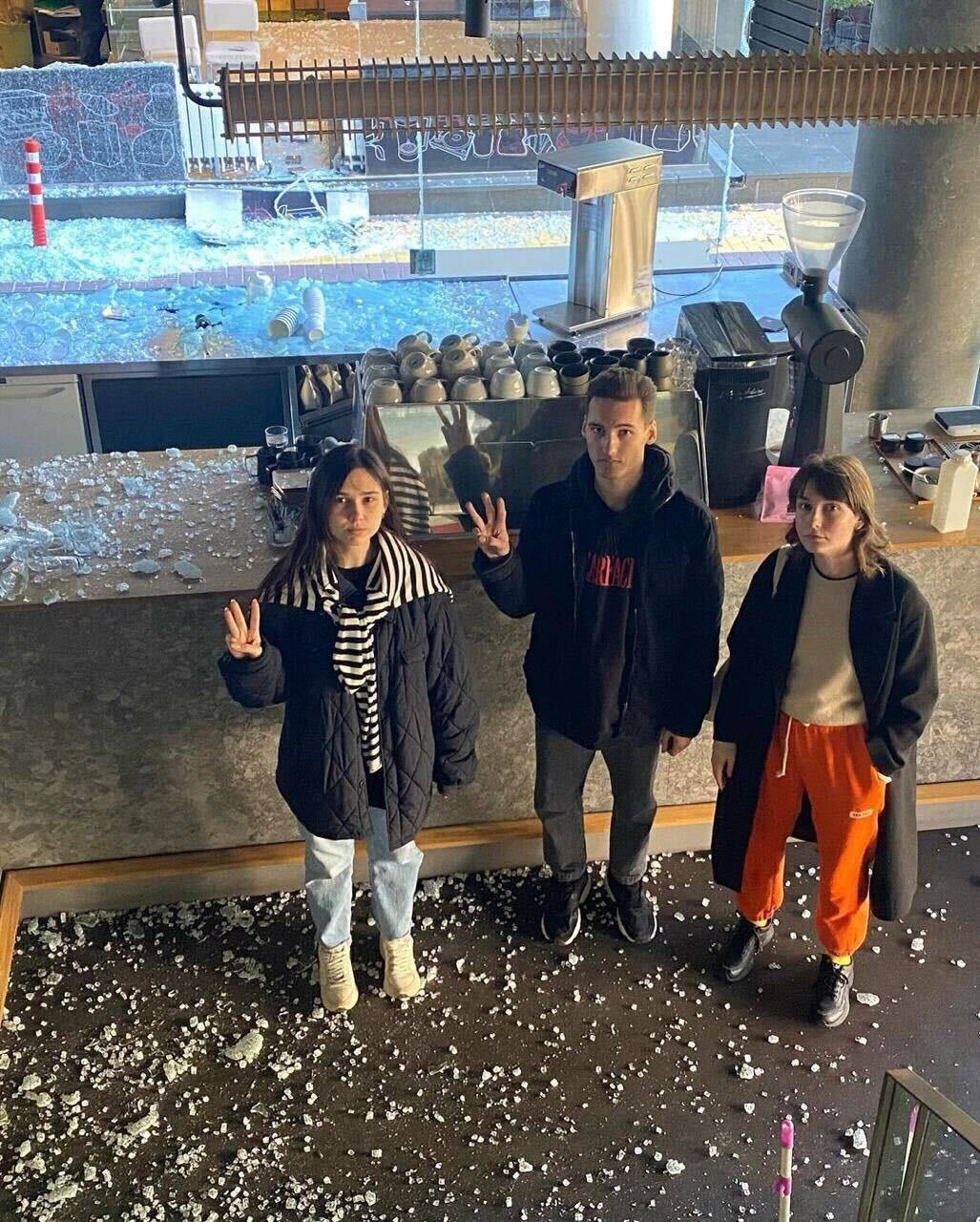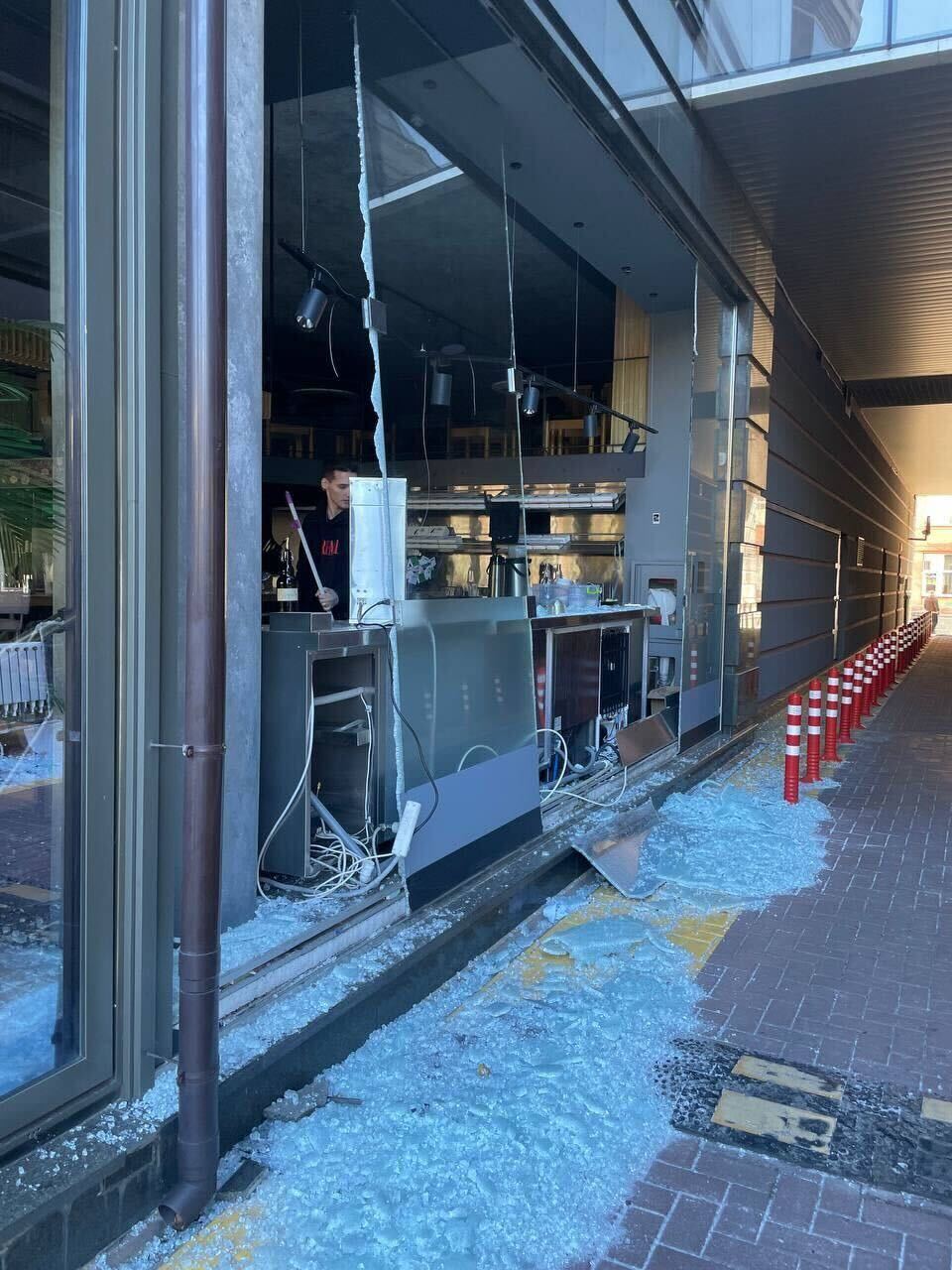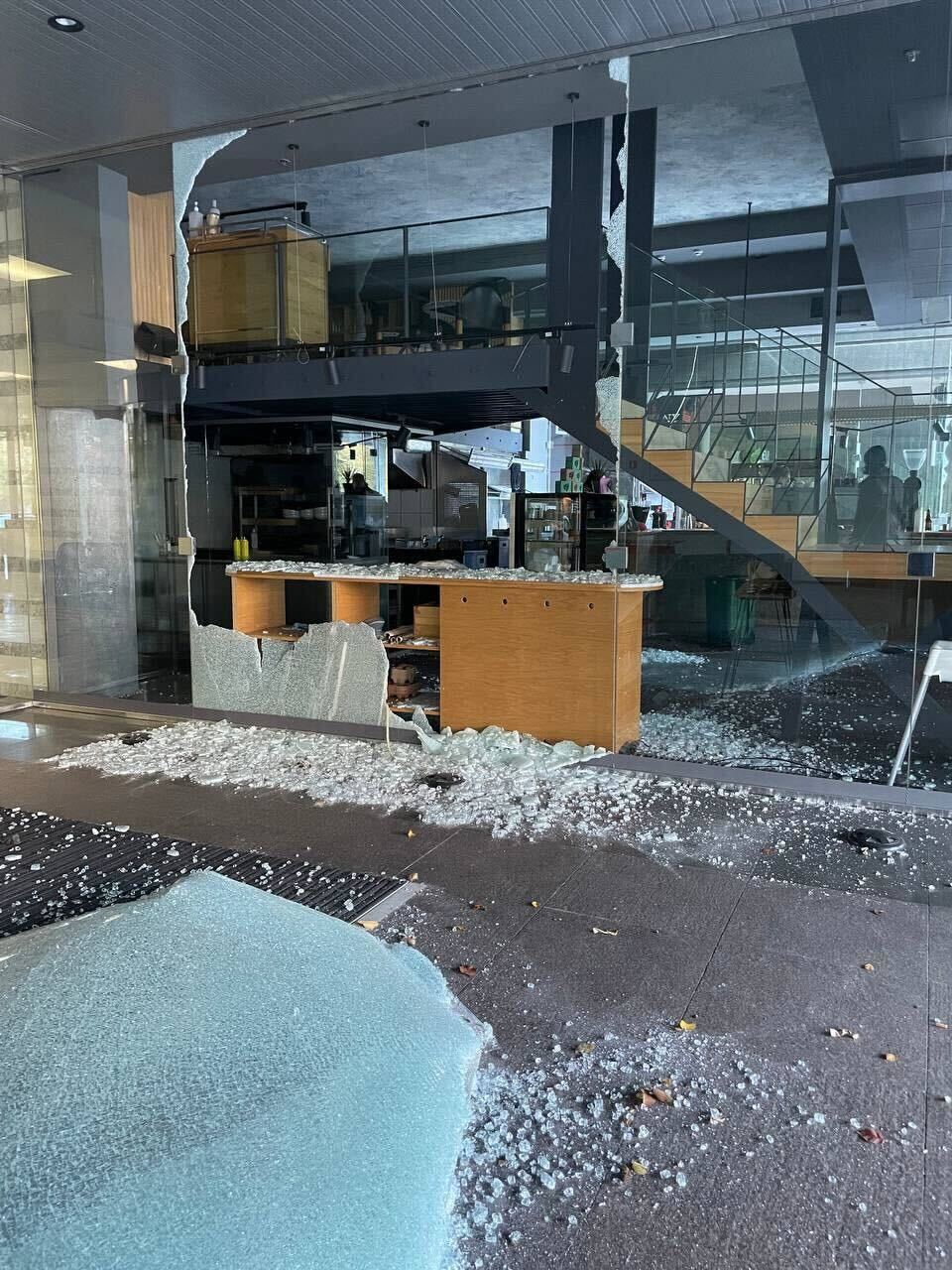Oleksandr Fedorov works as a chef and barista in central Kyiv. But in a city at war, and with a population facing frequent Russian missile attacks and blackouts, he knows that what he and his colleagues do at the Takava café on Zhylianska Street, Kyiv, is about far more than just food and coffee.
"Our guests come for support and recharge with positive energy," he tells Kyiv Post. “We do not work for money – we work so we can provide this.”
JOIN US ON TELEGRAM
Follow our coverage of the war on the @Kyivpost_official.
The challenge for small businesses like Takava is they are not immune from the very same things their customers are seeking respite from.
On Oct. 10 – the day Russia began its mass missile strikes against Ukraine’s energy infrastructure – those working that morning heard the unmistakable sounds of two rockets exploding in the city center near Taras Shevchenko Park.
Knowing there were more missiles on their way, the staff closed up and took shelter in an underground car park.
A few minutes later a missile struck the 101 Tower just a few hundred meters away. The blast wave blew out all the windows in Takava and destroyed some of its coffee-making equipment.
"This caused losses of about £30,000,” says Bekir Suleymanov, who co-founded the Takava chain along with Erwin Memetov in the summer of 2017.
With the help of a team of volunteers who flocked to help, the café was open again and serving customers just two days later.

Putin Says Again He‘s Ready for Compromise - On His Terms, Of Course
Since then, the missiles have not stopped and while the café has been fortunate enough to not be near the site of any more major explosions, they have had to deal with the devastating effects of Russia’s attacks on Ukraine’s energy infrastructure.
Rolling and emergency blackouts mean the power goes out in Takava on a daily basis, yet they stay open. Customers can order from a special menu of items that don’t require electricity to cook – sandwiches, cakes and an avocado on toast sprinkled with nuts and berries.
With the help of gas burners, it is planned to expand the range of dishes, and with the help of candles, create an atmosphere of calm and comfort.
Fedorov says Ukrainians have quickly adapted to the discomfort caused by Russia’s attempt to freeze civilians during the brutal winter months and people are always aware that those on the front lines are suffering far more.
"Now, complaining about something is a sin,” he says. “Here you come home and there is no light. At first you get angry, but then you imagine the military defending us and everything immediately becomes unimportant.”
Fund-raising
Despite being direct victims of the war, the Takava team still finds time to raise money to help others. Together with the charity organization Repair Together, the Takava crew are raising money to rebuild homes in communities destroyed by Russian aggression.
“The idea was to sell 2,000 packs of coffee, worth about 400 Hr. each, to equal the 8,000 bricks needed to restore Nina’s house [a family home destroyed in the Cherkasy region]. One hundred percent of sales went towards the restoration,” says Suleymanov.
“It’s been possible to collect about 340,000 Hr. for the restoration.
“Together with each pack of coffee we sell, we attach a pebble from the destroyed house. Also, if desired, coffee can be left with a note for the Ukrainian military," Fedorov adds.
After victory
Memetov and Suleymanov are originally from Crimea and came to Kyiv in 2014 when Russia illegally annexed the peninsula. Their main business goal is to open premises back home.
“In 2023, we will open in Crimea: first in Yevpatoria, then in Bakhchisarai, Yalta and Sudak.
“We also plan to expand our network in our friendly European countries. We have a great future, just like all Ukrainians."
You can also highlight the text and press Ctrl + Enter


